[Editorial] Hearts of Darkness: Black Swan (2010) and the Death of Perfection
A beautiful ballerina waits on a cold, dark stage. The picture of innocence, she dances in a perfect white tulle dress with skirts falling to her mid calves. She is the epitome of girlish perfection, delicately floating on pointed toes trimmed with pale pink ribbon. But as the music grows more ominous, a dark Sorcerer enters the stage behind her. Frightened, she tries to evade him, but it’s no use. She spins in confusion as the feathers of his spell unfurl around her. She has become a swan haunting the waters of the moonlit lake. A graceful bird trapped in a pristine cage of perfection.
The story of Swan Lake is one of entrancing feminine beauty, manipulative seduction, and unrequited love. Brought to life by Tchaikovsky’s unparalleled score, it has become the definitive ballet, an iconic representation of the art form. It’s star is the Swan Queen, traditionally a dual role requiring a soloist to play both the innocent and fragile White Swan and also her evil twin, the seductive and malevolent Black Swan. In his film named for the entrancing darker sister, Darren Aronofsky examines these polarized representations of femininity and the fallacy of physical beauty. His heroine, Nina (Natalie Portman), is a woman torn between the expectations set upon her by others and the Black Swan inside her struggling to break free.
Nina Sayers is a soloist at a prestigious ballet company in New York City. Timid and obsessed with perfection, she lives under the careful watch of her mother (Barbara Hershey), a former dancer whose own life revolves around Nina’s career. Seeking to live vicariously through her daughter’s success, she controls every aspect of Nina’s life and keeps her trapped in a life of girlhood. She has raised Nina to be the White Swan, carefully composed and docile, willing to let others shape her destiny. As a result, Nina is an adult living the life of a child, depending on others to tell her who she is and what she should be.
Vying for control of Nina is Thomas (Vincent Cassel), her director at the ballet company. A domineering narcissist with a history of seducing his prima ballerinas, he tries to mold her into his own idea of perfection. He casts Nina as the Swan Queen and encourages her to embody the Black Swan’s seductive independence, to let go of her desperate need for control. Fearing that she will never be able to break free of the White Swan’s spirit, he publicly shames her for her attempts to please him with perfection. While this encouragement to let go sometimes reads as empowerment, Thomas is merely trying to get a performance out of Nina, and perhaps manipulate her into his bed. To him, she is just another girl in a long line of dancers who fall under his spell before he grows bored and moves on to the next.
Caught between two masters, Nina struggles to please them both, working herself to the bone to meet Thomas’s impossible standards and abandoning all autonomy while at home with her mother. But Nina finds herself haunted by a mysterious woman. Sometimes appearing in the form of fellow dancer Lily (Mila Kunis) and sometimes a more confident version of herself, she is the ghost of who Nina could be, the spirit of the Black Swan within her. In order to maintain the perfectly pleasing image she’s been taught to prioritize, Nina has kept this spirit hidden away, buried so deeply that she’s all but ceased to exist.
It’s not until Nina wins the coveted role of Swan Queen that the Black Swan awakens and begins to break down the doors of Nina’s psyche. Though she is depicted as a villain, I have always seen the Black Swan as a liberator. An empowered woman free to be ugly and cruel, dangerous, and desirable if she chooses. She exists as pure feeling and is not encumbered by the oppressive desire to please. She is a threat to the White Swan because she reveals the fallacy and emptiness lying within the delicate perfection Nina has spent her life crafting.
I’ve spent most of my life searching for this perfection as well and hiding from my version of an evil Sorcerer. My father is a rageful narcissist and my mother would excuse his tirades as a result of his “perfectionism.” According to her, he lost his temper and lashed out at us not due to any fault of his own, but because we had made some kind of mistake or failed to live up to unstated expectations. I grew up terrified of his outbursts and, due to my mother’s explanation, thought I could prevent them by being perfect.
The instinct to manage his behavior through excellence was so deeply ingrained in me that I never even thought to question it. I believed his anger was just his way of wanting the best for me, a strange manifestation of his love. He became the dark Sorcerer standing over my shoulder, constantly reminding me that I wasn’t yet good enough to please him. My life was one long struggle for flawlessness and I found myself trapped in a neverending prison of impossible standards. Even worse, I learned to equate this cruel judgment with love and, as an adult, sought out men just like him.
Nina’s struggles to impress Thomas are equally frustrating. He seems to want a version of submissive aloofness that even he is incapable of defining. He explains it to Nina by comparing her to other dancers and constantly pointing out the ways she is failing. She begins to view every action through the lens of his approval. After being named the Swan Queen, she calls her mother and gushes, “he picked me!” Rather than saying she earned the role,” Nina considers her accomplishment to be an act of his generosity. He is the one to be praised for his wisdom and kindness. Her only accomplishment is tricking him into choosing her.
Like Nina, I viewed my life through the lens of my father’s approval, meticulously scrutinizing everything I said or did for evidence of imperfection. As the years wore on, I found the constant vigilance unsustainable. The barrage of shame and fear in my head turned every day into a nightmare. I isolated myself when I could, hiding from people to avoid making a mistake I assumed would make them angry. When I was social, the voice of the Sorcerer was always there, critiquing my every word or action. I grew to fear people, sure they would see the worthless little girl the Sorcerer always reminded me I was. Like Nina, I became consumed with trying to trick people into seeing a perfect illusion, rather than my true self.
I learned to quiet this voice with alcohol. When I was drinking, I was free of the voices constantly telling me I wasn’t good enough. I became the Black Swan, unafraid and empowered, strong and carefree. I would lose myself in the freedom of letting go and abandon my grip on the control that dominated my sober life. But this temporary exhilaration was, of course, also unsustainable. I would inevitably wake up the next morning, drowning in the guilt and terror of what I had done when I lost control.
Years later, I found my way to sobriety, but the Black Swan within me did not go away. She haunted me with the promise of empowerment and I longed for the destructive freedom I’d found in drinking. Though I knew the damage she could do to my life, I missed her intoxicating spells. I missed the power she had to quiet the voices constantly screaming in my head. But mostly I missed the relief of not feeling shame. She seduced me with the possibility of happiness and told me I could get it by abandoning everything I’d built my life around.
Nina’s struggle to embrace the Black Swan comes from her deep fear of letting go. Messy, impulsive, confident, and strong, she is the embodiment of everything Nina has spent her life trying to avoid. She doesn’t care about what others think of her and lives in the moment, seeking pleasure above outside approval. But the voice of the Sorcerer lives in Nina’s head as well. A combination of her mother and Thomas, he whispers in her ear that she is nothing without his spell, the image of perfection he’s told her she must be. The mental domination is so strong that Nina likely has no idea who she will be without the White Swan. She’s become so dependent on the approval of others that she barely has a voice at all. If she does let go, will she recognize herself? If she loses herself in the music, will she be able to find her way back?
As the Black Swan’s influence grows, Nina finds her body beginning to change. Her skin peels. Her back breaks out in rashes. Her toes begin to web. Her body is taking back its autonomy, slowly becoming what it needs to be rather than the image of physical perfection Nina has forced upon it. The Black Swan is emerging whether Nina wants her to or not. In one of the film’s most terrifying moments, Nina’s body begins to transform on its own. Her hair knots in messy tangles, her eyes become a deep red while her skin begins to prickle and sprout feathers. Her legs disjoint and she becomes something new, imperfect, but beautiful in her monstrosity.
My body began to change as well. Though I did not go back to drinking, I began to physically respond to the Sorcerer's cruel voice. The constant stress and lack of relief caused crippling anxiety and frequent panic attacks. My hair began to fall out, my breath would quicken, I would clench my hands with such force that I sprained their muscles. I also began to hurt myself, cutting the back of my wrist as punishment for the faults the Sorcerer identified. My body could not sustain the amount of control I was attempting to exert and simply began to give up. Through therapy, I learned to manage the stress and made several life choices that led me to a better place. Though I still struggle to quiet the voice I’ve now identified as that of my father, I’m learning to love all the parts of myself, the Black Swan and the White.
Nina’s Black Swan finally breaks free during her performance. After a humiliating fall onstage, she retreats and gives herself over to the dark spirit. Perhaps she’s realized that the White Swan is no longer strong enough to manage the stress. She needs the Black Swan’s energy to guide her through the terrifying moments when she must stand on her own. She lets the Black Swan free and her performance is triumphant. Though not technically perfect, Nina fully disappears into the role and allows herself to enjoy her own success. Though she seems to come back to her senses during intermission, the ballet’s final act forces Nina to choose between a life of control and the death of everything she’s ever known.
In the conclusion of Swan Lake, the White Swan jumps from a cliff into the lake far below. Her death breaks the spell and she is finally free of the Sorcerer’s control. Standing on the stage’s cliff, Nina must make a similar choice. She can go back to living under the domination of Thomas and her mother, watching her life slip away while going through the motions of someone else’s vision. Or she can take a leap into the unknown, seeking a new vision for her life with terrifying but exciting possibilities. She may fail. She may let others down. But at least she'll be free. Locking eyes with her mother in the audience, a physical representation of the control that awaits her when the music ends, Nina realizes that there really is no choice at all. She steels herself for the fall and jumps.
Most interpretations of Aronofsky’s conclusion believe that Nina dies as a result of her fall and the shard of glass embedded in her stomach. But I find her leap so empowering that I refuse to believe it ends in her death. I choose to believe that it isn’t Nina who dies, but the voice of the Sorcerer within her. Her jump is an act of liberation, killing the part of herself that needs to be perfect and leaving her life of strict control behind. The Nina that emerges will not be governed by either the Black Swan or the White Swan. She will no longer have to live a life of disorienting duality; all or nothing, caged or free. She can let both aspects of her personality shine through with the understanding that there is nothing fundamentally wrong with either. The White Swan gives her the stability to maintain her life and the organization to support herself. It is the technique that allows her to dance without injury. The Black Swan allows her to feel the music as she dances. To enjoy all the things she’s worked so hard to build. The Black Swan tells her it’s ok to let go. The White Swan helps her find her way back.
The version of Nina that I imagine rising to take her final bow is the one that I want to be. She is able to embody both roles, never fully descending into either. Key to this transformation is letting go of the need to please everyone else. Before Nina takes the stage, Thomas gives her a message intended to inspire. He tells her that she is the only one standing in her way. But he’s failed to recognize the toll his narcissistic demands have taken. Along with her mother, Thomas stands in Nina’s way by constantly insisting she change herself to suit him. A more helpful message would be that the only person she needs to please is herself. In living for Thomas and her mother, Nina will never be able to live for herself. Like Nina, I have to let go of the Sorcerer’s voice if I ever want to be happy with the person I actually am.
Long ago, a friend taught me a mantra that I’ve carried with me and tried to believe: “Approval comes from within.” The only voice that can tell me who I am should be mine. The only person who decides if I’m good enough should be me. If I can break the spell that’s kept me locked in a prison of perfection, I might find the version of myself that actually makes me happy. I want to let go without the voice of the Sorcerer telling me I’ll never find my way back. I want to live with the Black Swan and the White Swan knowing that both versions of myself can coexist. Fully human and fully free.

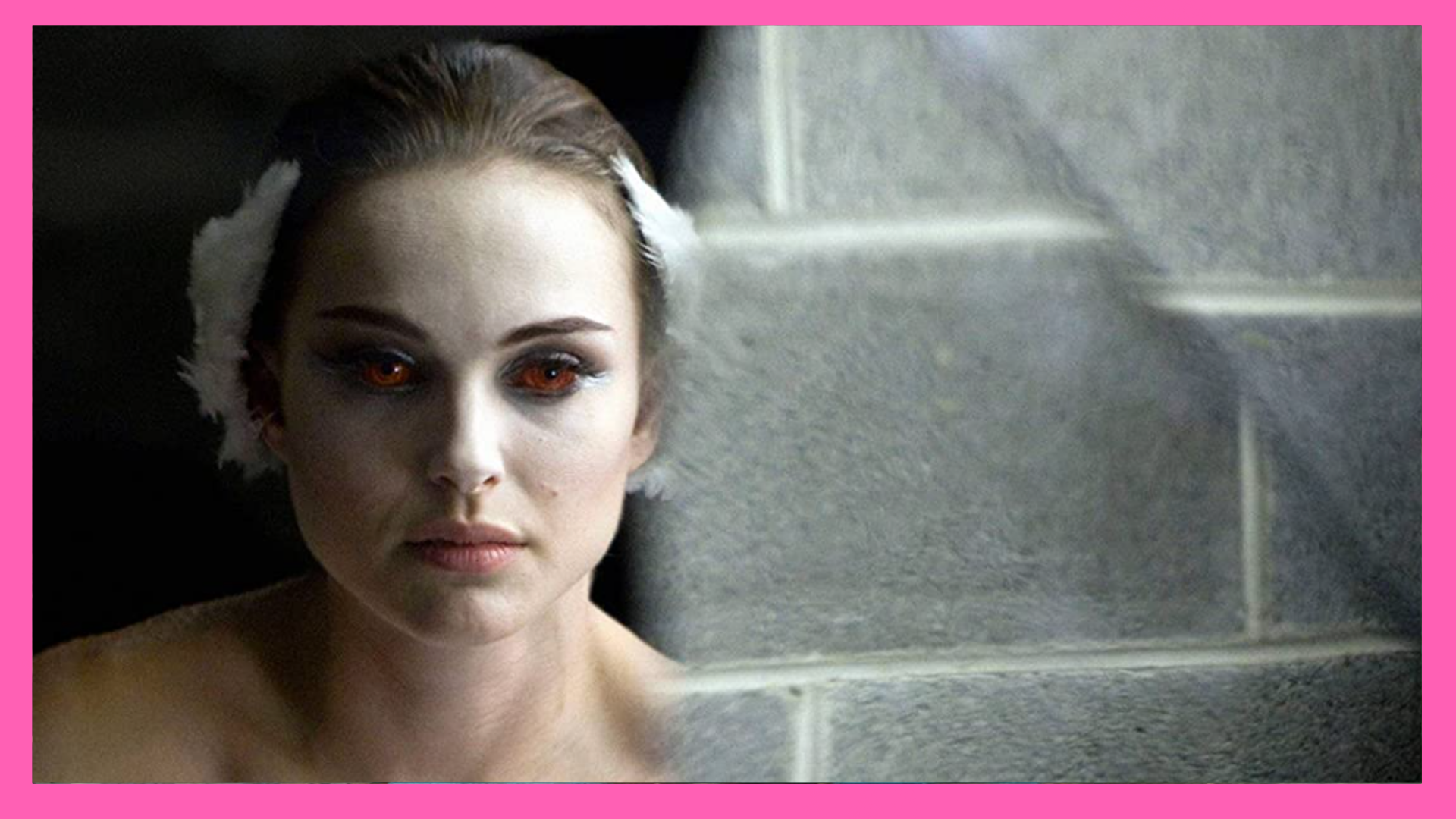
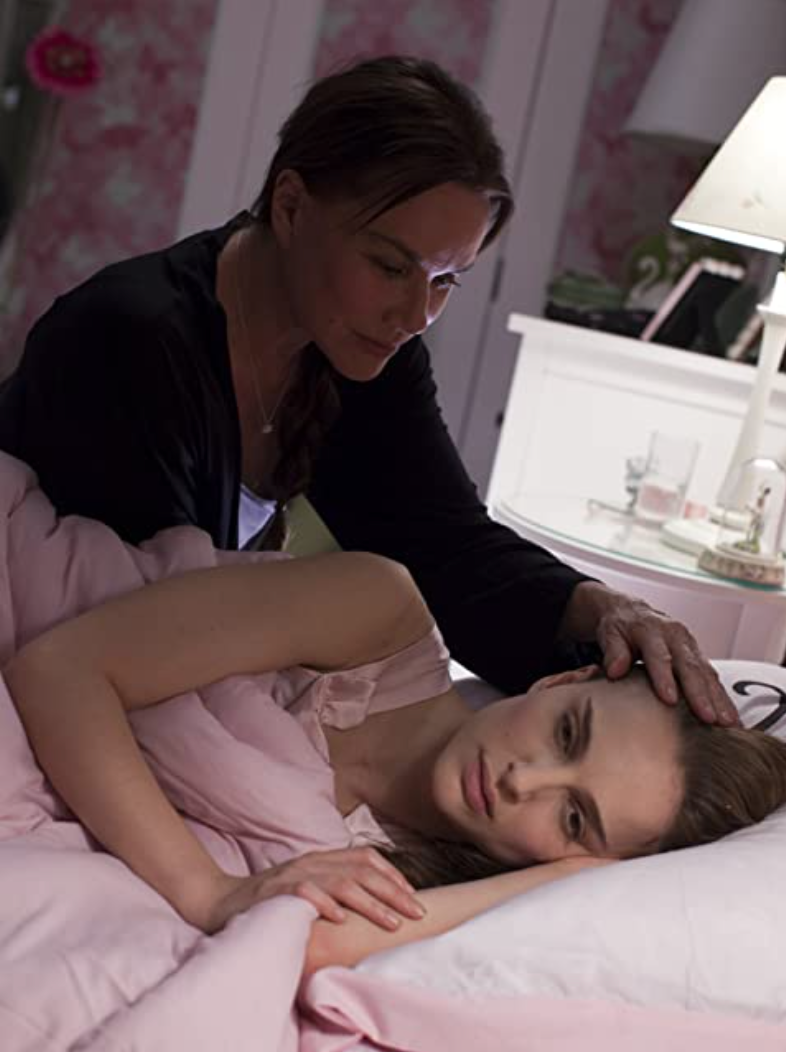
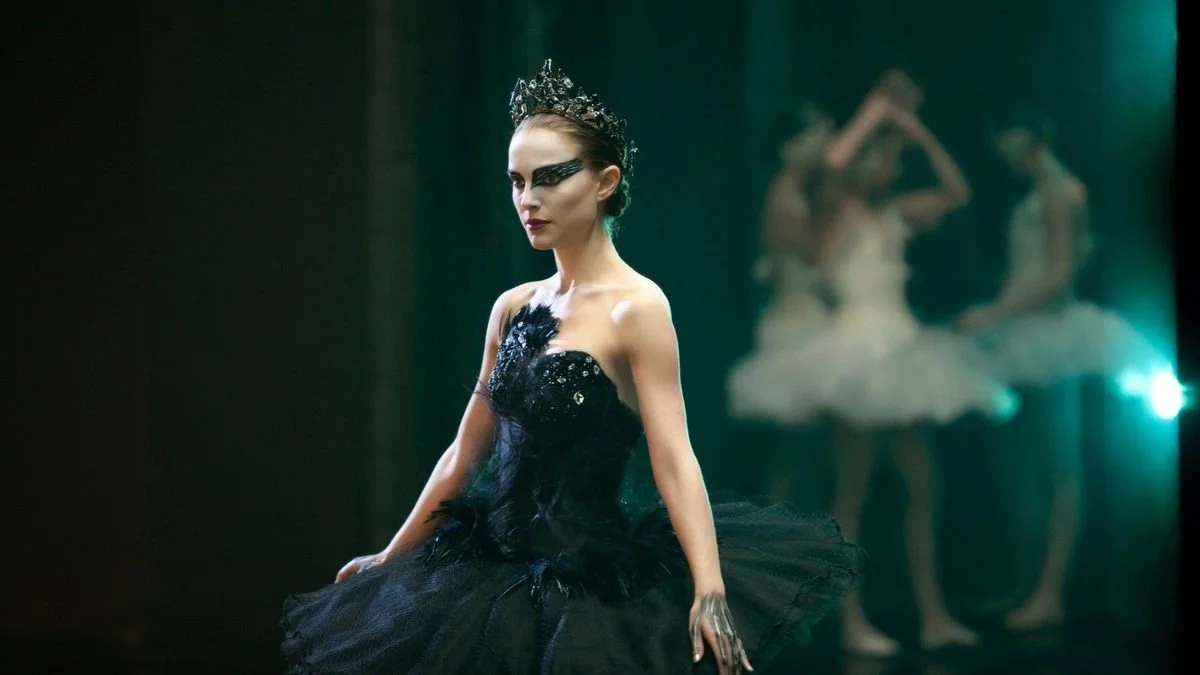
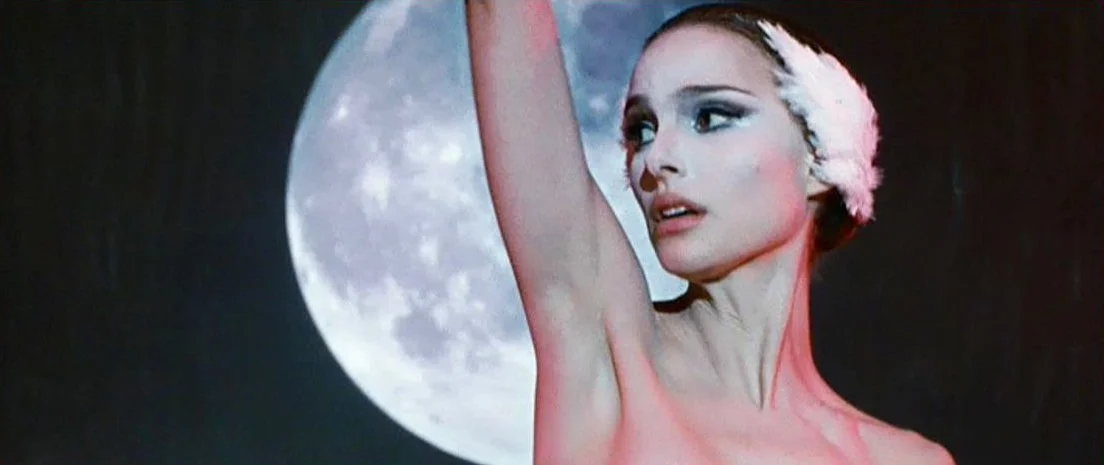
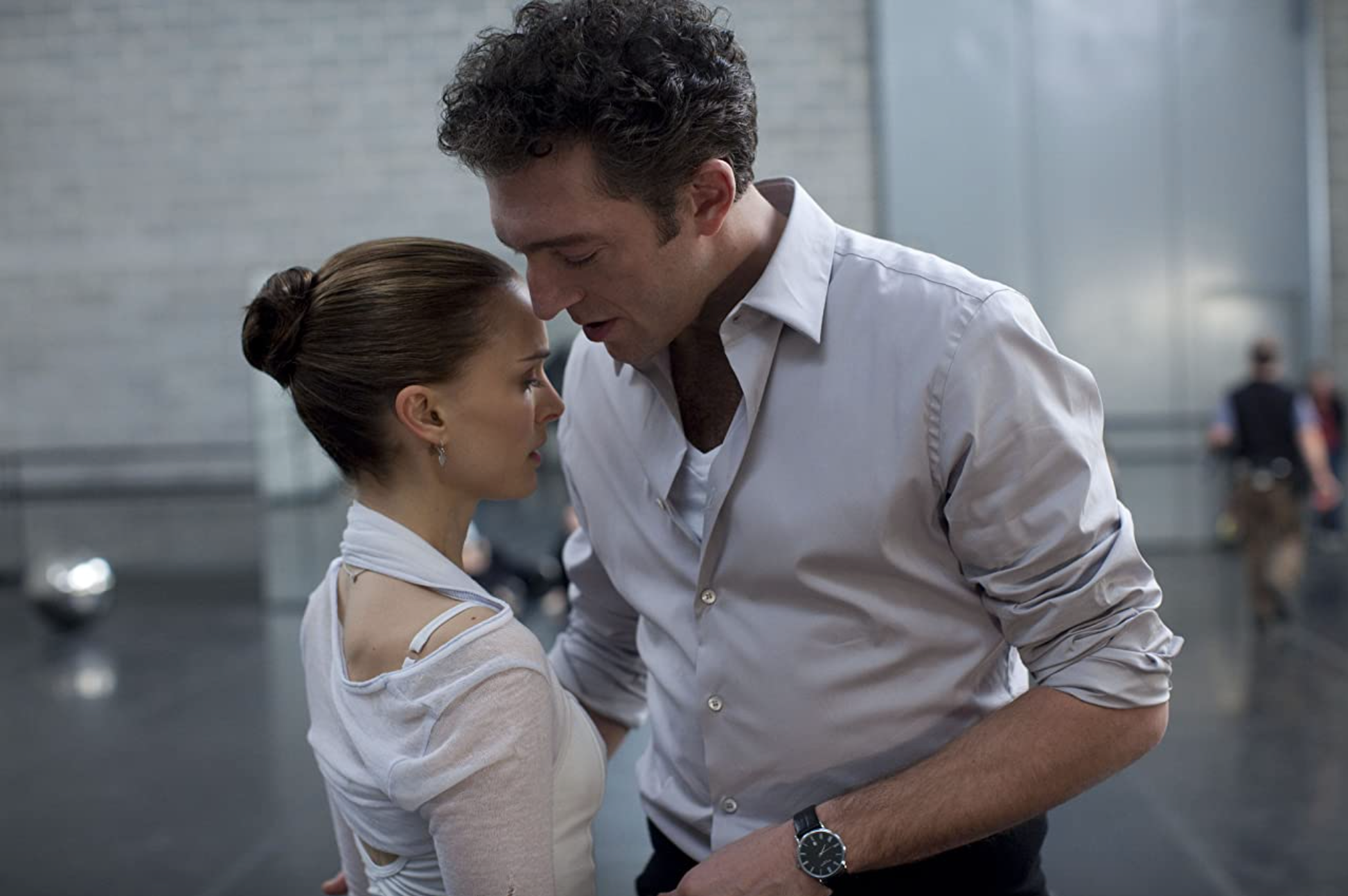
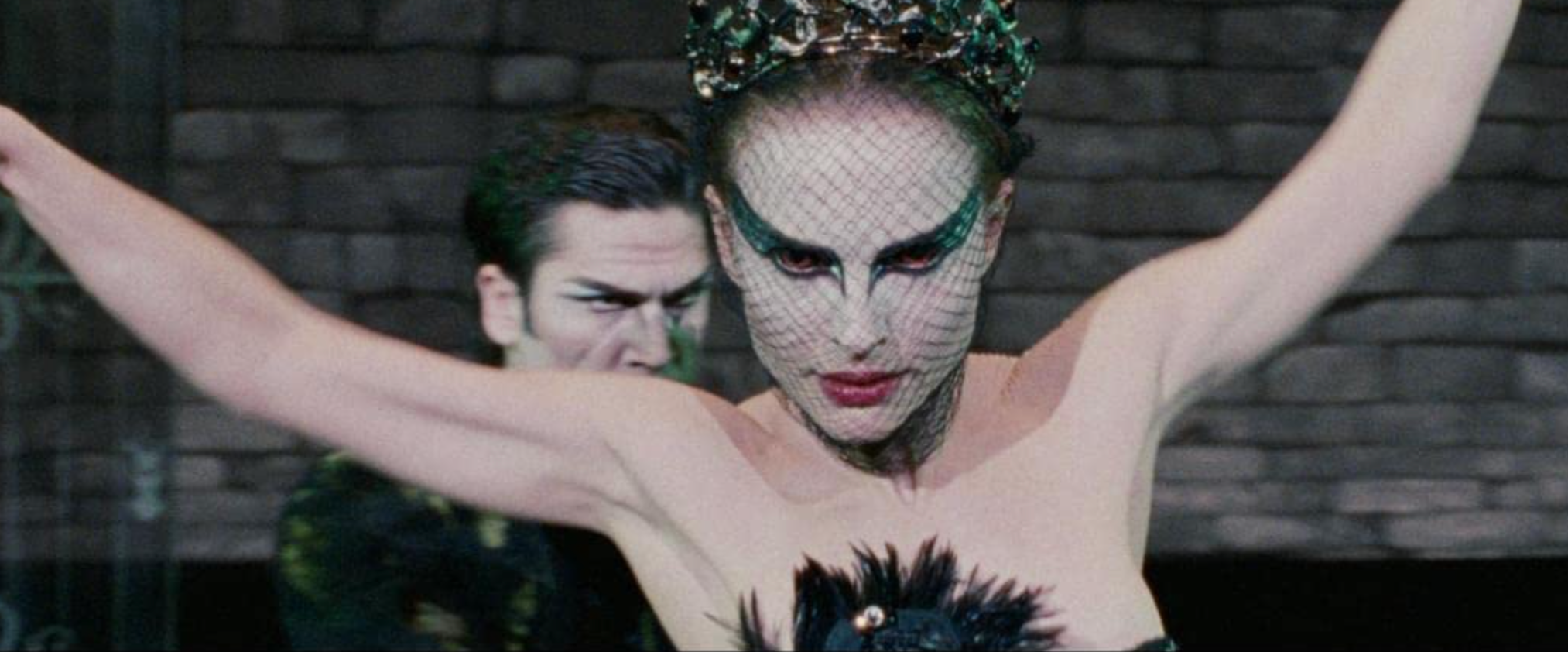
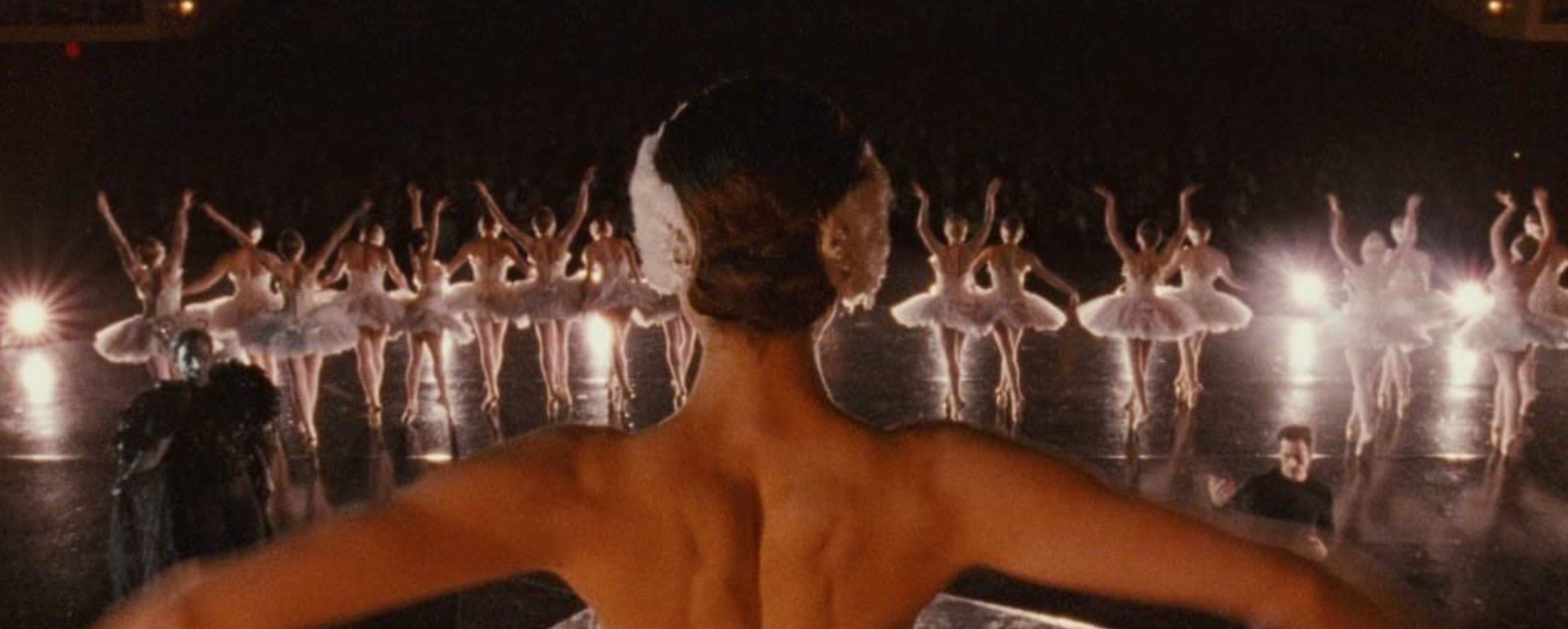
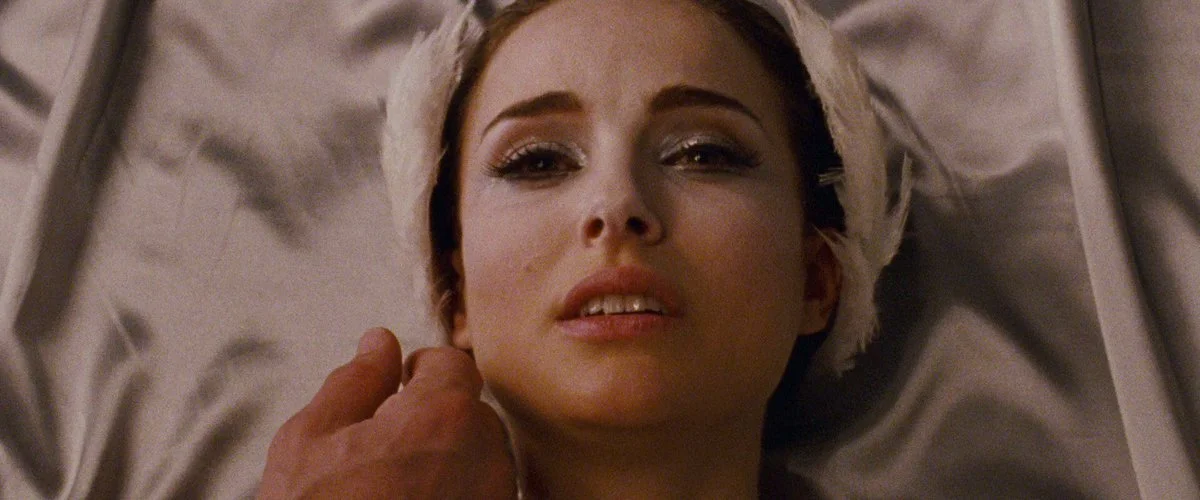

![[Editorial] In Her Eyes: Sara Lowes in Witchfinder General (1968)](https://images.squarespace-cdn.com/content/v1/5fe76a518d20536a3fbd7246/1655655953171-8K41IZ1LXSR2YMKD7DW6/hilary-heath.jpeg)
![[Editorial] The Babadook (2014)](https://images.squarespace-cdn.com/content/v1/5fe76a518d20536a3fbd7246/1651937631847-KR77SQHST1EJO2729G7A/Image+1.jpg)
![[Editorial] In Her Eyes: Helen Lyle in Candyman (1992)](https://images.squarespace-cdn.com/content/v1/5fe76a518d20536a3fbd7246/1649586854587-DSTKM28SSHB821NEY7AT/image1.jpg)
![[Editorial] Lorraine Warren’s Clairvoyant Gift](https://images.squarespace-cdn.com/content/v1/5fe76a518d20536a3fbd7246/1648576580495-0O40265VK7RN03R515UO/Image+1+%281%29.jpg)
![[Editorial] Sara in Creep 2 (2017)](https://images.squarespace-cdn.com/content/v1/5fe76a518d20536a3fbd7246/1646478850646-1LMY555QYGCM1GEXPZYM/27ebc013-d50a-4b5c-ad9c-8f8a9d07dc93.jpg)
![[Editorial] Sally Hardesty in The Texas Chainsaw Massacre (1974)](https://images.squarespace-cdn.com/content/v1/5fe76a518d20536a3fbd7246/1637247162929-519YCRBQL6LWXXAS8293/the-texas-chainsaw-final-girl-1626988801.jpeg)
![[Editorial] Margaret Robinson: Hammer’s Puppeteer](https://images.squarespace-cdn.com/content/v1/5fe76a518d20536a3fbd7246/1630075489815-33JJN9LSGGKSQ68IGJ9H/MV5BMjAxMDcwNDI2Nl5BMl5BanBnXkFtZTcwOTMxODgzMQ%40%40._V1_.jpg)
![[Editorial] Re-assessing The Exorcist: Religion, Abuse, and The Rise of the Feminist Mother.](https://images.squarespace-cdn.com/content/v1/5fe76a518d20536a3fbd7246/1629995626135-T5K61DZVA1WN50K8ULID/image2.jpg)
![[Editorial] Unravelling Mitzi Peirone’s Braid (2018)](https://images.squarespace-cdn.com/content/v1/5fe76a518d20536a3fbd7246/1628359114427-5V6LFNRNV6SD81PUDQJZ/4.jpg)
![[Editorial] American Psycho (2000)](https://images.squarespace-cdn.com/content/v1/5fe76a518d20536a3fbd7246/1627317891364-H9UTOP2DCGREDKOO7BYY/american-psycho-bale-1170x585.jpg)














![[Editorial] Oscar Nominations 2026: Where to stream all the horror picks](https://images.squarespace-cdn.com/content/v1/5fe76a518d20536a3fbd7246/1769113319180-4INRRNMZK4DZLHRSUXX5/rev-1-GRC-TT-0026r_High_Res_JPEG-1024x372.jpeg)
![[Editorial] 10 Films & Events to Catch at Soho Horror Film Fest 2023](https://images.squarespace-cdn.com/content/v1/5fe76a518d20536a3fbd7246/1700819417135-299R7L4P0B676AD3RO1X/Screenshot+2023-11-24+at+09.41.52.png)
![[Editorial] 9 Horror Nintendo Switch Games To Play](https://images.squarespace-cdn.com/content/v1/5fe76a518d20536a3fbd7246/1697214470057-3XZXX8N4LYIMDFWS6Z3P/Screenshot+2023-10-13+at+17.20.13.png)
![[Mother of Fears] Mothering in Silence in A Quiet Place (2018)](https://images.squarespace-cdn.com/content/v1/5fe76a518d20536a3fbd7246/1696445921315-HZJ2DZYQIH6VVWXBO2YL/Screenshot+2023-10-04+at+19.52.29.png)
![[Editorial] 5 Female Focused Horror Book Recommendations](https://images.squarespace-cdn.com/content/v1/5fe76a518d20536a3fbd7246/1696441981361-52EQCTJ7AT2QF1927GM7/919xtm6d3fL._AC_UF894%2C1000_QL80_.jpg)
![[Editorial] 9 Best Slashers Released Within 10 Years of Scream (1996)](https://images.squarespace-cdn.com/content/v1/5fe76a518d20536a3fbd7246/1695478839037-LOFHGVM3H6BMSZW7G83M/Screenshot+2023-09-23+at+15.15.11.png)
![[Mother of Fears] Mother Vs. Monster in Silent Hill (2006)](https://images.squarespace-cdn.com/content/v1/5fe76a518d20536a3fbd7246/1695485781119-H6GNP0G3J2TLPAOIABV7/Screenshot+2023-09-23+at+17.11.56.png)
![[Editorial] 9 Terrifying Cerebral Visions in Horror Movies](https://images.squarespace-cdn.com/content/v1/5fe76a518d20536a3fbd7246/1693509801235-X23OL50T1DVGECH0ZJK2/MV5BMjQ0MTg2MjQ4MV5BMl5BanBnXkFtZTgwMTU3NDgxMTI%40._V1_.jpg)

Possessor is a slick futuristic thriller in which Tasya Vos, an assassin for hire, must manage her responsibilities as an elite killing machine and complex feelings towards her husband and son, whilst taking on another high-profile job that will push her to the edge of her sanity.